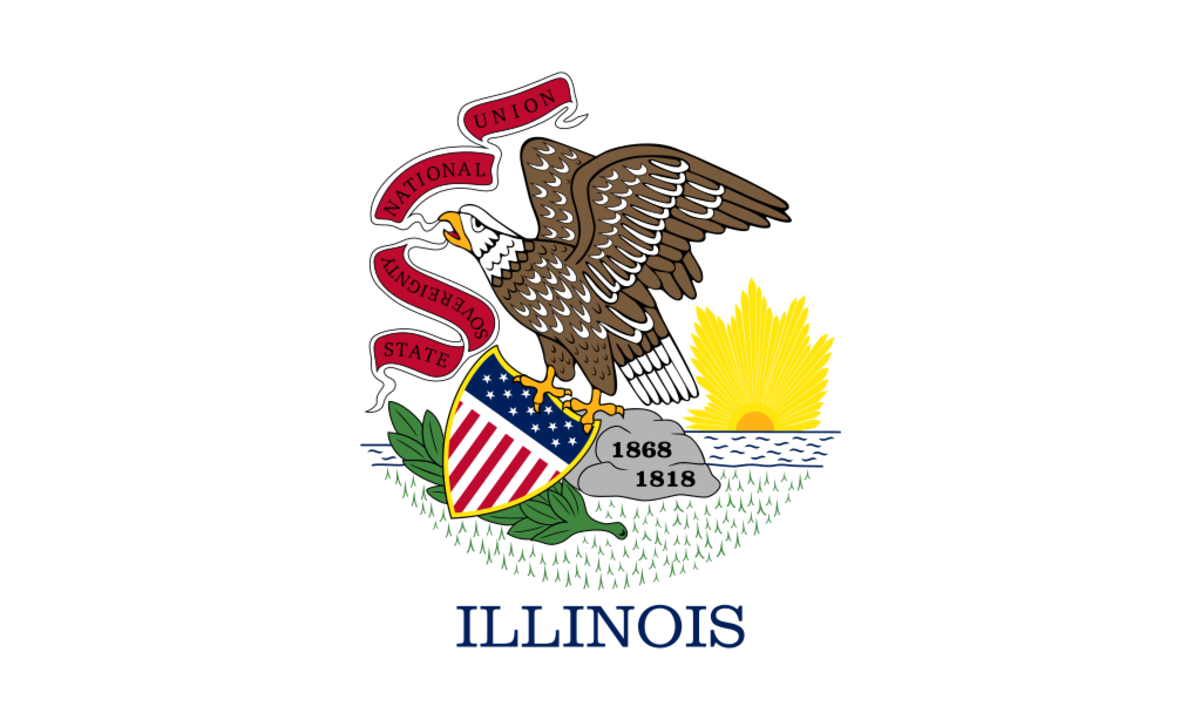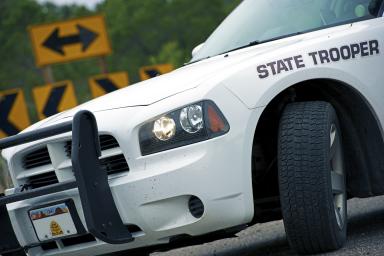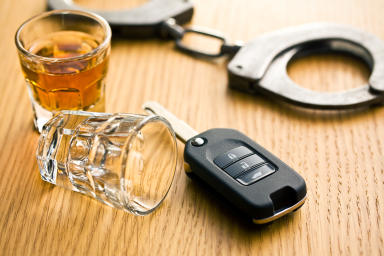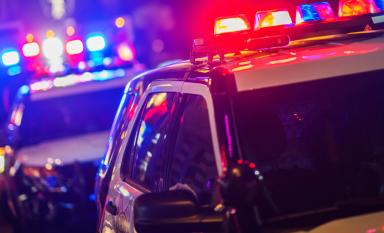Illinois DUI Laws

Driving under the influence puts everyone on the road at risk of serious injuries or death. In 2021, a total of 1,217 fatal crashes occurred; 22.2% of these crashes involved alcohol, according to the Illinois Crash Facts and Statistics published by the state’s DOT. The report also showed the following:
Eight hundred fifty-three motor vehicle drivers were killed; 544 were tested for blood alcohol concentration, and 42.3% had a BAC of 0.01% or above.
Two hundred fifteen pedestrians were killed; 81 were tested, and 38.3% had a BAC of 0.01% or above.
Thirty-five cyclists were fatally injured; 11 were tested, and 18.2% had a BAC of 0.01% or above.
Illinois implements enforcement programs and preventative measures to reduce alcohol-impaired driving throughout the state. Several strategies are also being implemented to reduce injuries and deaths resulting from drunk driving. These strategies include law enforcement training, underage drinking prevention, fraudulent ID programs, and no-refusal search warrant policy implementation. This article discusses these laws, policies, and programs. It also guides Illinoisans injured in a drunk driving accident or those convicted of DUI.
General DUI Laws in Illinois
In Illinois, drivers are prohibited from operating a motor vehicle while impaired by controlled substances, such as alcohol, drugs, and medically prescribed cannabis. When a motor vehicle operator has a BAC of 0.08% or higher, has a THC concentration of 5 nanograms per milliliter of whole blood or 10 nanograms per milliliter of another bodily substance, uses other controlled substances, or is medication-impaired, they are considered to be driving under the influence.
Law enforcement officers may perform a traffic stop if they suspect the driver is operating a vehicle while under the influence. When a police officer pulls over a driver, they should slow down and do so safely on the right shoulder of the road. They should avoid stopping in the lane of traffic or too close to the solid white line.
The driver should also remain seated inside their vehicle with their hands holding the steering wheel. Expect the officer to approach the vehicle from either the passenger or driver side. The driver must comply with all requests for their registration, driver's license, and proof of insurance and must not attempt to exit the vehicle unless the officer specifically requests it. In addition, the driver may be asked to undergo field sobriety tests but the driver is not required to comply with that request. Depending on the test result, the officer may decide to arrest and subject them to chemical tests.
Implied Consent Law
Illinois adheres to the law of implied consent, which asserts that the driver being stopped for drunk driving suspicion consents to a chemical test to determine their BAC. Drivers who refuse to comply will face a license suspension of up to three years. The arresting officer may also use the refusal as evidence that the driver is guilty of driving under the influence.
Underage Drinking in Illinois
Illinois follows a zero tolerance law, which mandates that any driver under the age of 21 found to have any BAC will lose their driving privileges. They are also not allowed to purchase, possess, receive, or transport any alcoholic beverage.
Parents or legal guardians are not allowed to let individuals under the age of 21 consume alcoholic beverages on their property. If the underage person causes injuries or death to others because of their alcohol consumption, the parent or legal guardian may be held liable and face criminal penalties.
In addition, if minors are caught driving with any trace of alcohol or drugs, their driving privileges will be suspended for three months for the first offense and one year for the second and subsequent offenses. Refusal to undergo a BAC test is punishable by a six-month license suspension for the first offense and a two-year license suspension for the second and subsequent offenses.
Any person under the age of 21 may be charged with DUI if they have a BAC of 0.08% BAC. They may also be charged if they have a BAC of 0.05% with obvious signs of impairment. This is punishable by a two- or five-year revocation of driving privileges for the first and second convictions, respectively. If they are caught transporting alcoholic beverages, driving privileges will be suspended for one year for the first offense and revoked for at least one year for the second offense.
What Are the Penalties for a DUI in Illinois?
In 2021, there were a total of 21,735 DUI arrests, based on the Illinois DUI Fact Book. Ninety-one percent of these arrested drivers lost their driving privileges, and 207 underage drivers lost their driving privileges for violating the zero tolerance law. Penalties for a DUI vary based on a driver’s refusal to submit to or failure to pass chemical testing. Another factor is the number of times the driver has been arrested for DUI. If the driver has a BAC of 0.16%, it is considered high BAC, and the penalties are more severe.
DUI with Standard BAC (.05% and above)
DUI with High BAC (.16% and above)
DUI with Minor Passengers
If the court grants driving privileges during the suspension period, an ignition interlock must be installed on the vehicle. Drivers must file an SR22 form with the Department of Driver Services, show proof of financial responsibility, and pay the $250 ($500 for repeat offenders) license reinstatement fee. After this, the Secretary of State’s office will issue a monitor device driving permit or reinstate the driver’s license.
Drivers who fail the chemical test for the second and subsequent violations within a five-year period will have their license suspended for a year. They are also not eligible for an MDDP during the suspension period.
Illinois Dram Shop Law
A dram shop is defined as any business, such as a restaurant, tavern, or bar, that sells alcoholic beverages to the public. Illinois’ dram shop law, also known as the Liquor Control Act, assigns liability to establishments that sell alcoholic beverages to patrons who later cause injuries to other people or damage to property. The plaintiff and their lawyer must prove the following:
The vendor sold alcohol to the patron.
The said patron caused the accident.
The vendor contributed to the patron’s intoxication.
The intoxication of the patron caused the plaintiff’s injuries.
In addition, the state’s dram shop law applies to individuals aged 21 and above who pay for a facility or a hotel room knowing that an underage person will use it to illegally consume alcoholic beverages. This individual may be held liable if the minor becomes intoxicated and eventually causes injuries or damage to others. The law does not apply to social hosts who serve alcoholic beverages during an event.
How Much Can Someone Sue for a Drunk Driving Injury in Illinois?
Individuals who are injured in a drunk driving accident in Illinois may seek compensation from the negligent party. However, they should prove the existence of the elements of negligence, which include:
Duty of care: The plaintiff must prove that the other party has a legal obligation to drive safely and abide by the law.
Breach of duty: The plaintiff should provide evidence that the defendant breached their duty of care to other people. This can be done by comparing their actions with those of responsible drivers in similar situations.
Causation: The plaintiff must prove that the defendant’s breach of duty caused the victim’s injuries.
Damages: The plaintiff must show that they suffered losses due to the defendant’s behavior.
After proving these elements of negligence, the plaintiff may seek compensation from the defendant. In some cases, the plaintiff may be partially at fault for the accident. The court resolves these by adhering to the modified comparative negligence system or the 51% bar. This law stipulates that the plaintiff may recover damages if they are less than 51% responsible for the accident. The total compensation will be reduced in proportion to the percentage of the plaintiff’s fault.
For instance, if the court determines that the total damages are $100,000 and the victim is 20% at fault, the compensation is $80,000. If the judge finds the plaintiff is 51% responsible for the accident, the victim may not recover damages.
Types of Damages
Illinois does not limit the amount of damages that may be awarded to the plaintiff. Financial compensation is determined by evaluating the economic and non-economic damages the victim sustained. Economic damages are tangible losses, such as medical expenses, lost wages, and property damage. On the other hand, non-economic damages are intangible losses, which include pain and suffering, mental and emotional distress, and disfigurement.
The court may also award punitive damages to punish the defendant for their grossly negligent actions and prevent future occurrences.
The Statute of Limitations in Illinois
Illinois’ statute of limitations for personal injury cases is two years. This applies to individuals seeking compensation for DUI-related injuries and deaths. The state law allows plaintiffs to have the initial documentation filed in court within two years from the date of the accident. For wrongful death cases, the deadline is two years from the date of the victim’s death.
If the plaintiff fails to file the lawsuit within the statute of limitations, they may lose their right to be compensated. However, there are several exceptions to this rule. If the victim is a minor or is mentally incapacitated, the clock begins when the minor turns 18 or the disability is removed. If the defendant left the state before the claim could be filed, their absence will not be counted as part of the two-year deadline.
In some cases, the victim may not find out about their injuries right after the accident. This is when the discovery rule applies. The clock begins at the time the victim discovers the injury resulting from the defendant’s negligence. If the accident resulted in property damage only, the statute of limitations is five years.
Resources for Folks Injured by an Impaired Driver in Illinois
Illinois State Police
The Illinois State Police promotes public safety and implements national and state laws. Illinoisans may report crashes that occurred on an Interstate, Illinois, or U.S. route. If a police officer does not appear at the accident scene, citizens are advised to file a report online or proceed to their respective local police department. Crash reports may also be obtained by sending a written request to the ISP’s Patrol Records Unit, Patrol Records Unit, 801 South 7th Street, Suite 600-M, Springfield, Illinois 62703. For further inquiries, contact them at ISP.CrashReport@illinois.gov or (217) 785-0614.
Illinois Department of Insurance
The Illinois Department of Insurance protects consumers’ rights through information dissemination and assistance. It also regulates the insurance industry's financial solvency and market behavior and fosters a competitive marketplace. In addition, it allows individuals who want to file a complaint to do so and provides answers to some of the most frequently asked questions regarding Illinoisans who want to pursue a third-party insurance claim. IDOI’s offices are located at 122 S. Michigan Ave, 19th Floor, Chicago, IL 60603, and 320 W. Washington St., Springfield, IL 62767, with contact numbers (312) 814-2420 and (217) 782-4515, respectively.
Mothers Against Drunk Driving - Illinois
Mothers Against Drunk Driving aims to end drunk driving and prevent underage drinking. It also provides services to victims of drunk and drugged driving accidents. Some of its services include providing emotional support, connecting victims to other survivors and victims with similar experiences, preparing a victim impact statement, and guiding them through the civil and criminal justice systems. MADD’s team is available around the clock through their helpline, 1-877-MADD-HELP (1-877-623-3435), and email, victims@madd.org.
Illinois State Bar Association
The Illinois State Bar Association advocates for the interests of legal professionals and the public. It gives back to the community by providing pro bono services and donating to deserving causes. ISBA also provides a list of government agencies and non-profit organizations that can help Illinoisans who cannot afford legal services. The list includes Illinois Legal Aid Online, Illinois Attorney General Legal Assistance Referrals, Illinois Free Legal Answers, and the Veteran Legal Aid Society. ISBA’s offices are located at Illinois Bar Center, 424 S. Second Street, Springfield, IL 62701-1779, and 20 S. Clark St., Suite 900, Chicago, IL 60603-1802. They can be contacted at (217) 525-1760 or (800) 252-8908.
Expertise.com StaffAuthor
Step into the world of Expertise.com, your go-to hub for credible insights. We don't take accuracy lightly around here. Our squad of expert reviewers, each a maestro in their field, has given the green light to every single article you'll find. From rigorous fact-checking to meticulous evaluations of service providers, we've got it all covered. So feel free to dive in and explore. The information you'll uncover has been stamped with the seal of approval by our top-notch experts.

Matthew M. FakhouryReviewer
Matthew M. Fakhoury, a former Cook County prosecutor and adjunct professor at DePaul University, has carved an illustrious legal career spanning over 18 years. As the founding attorney of the Law Offices of Matthew M. Fakhoury, LLC, headquartered in Chicago with offices in Skokie and Rolling Meadows, he concentrates his practice in the area of Criminal Defense, leveraging his unique prosecutorial perspective. His influence extends to national media, with appearances on CNN, Court TV, NewsNation, and more, establishing him as a respected authority in criminal defense.
Visit: https://ildefense.com/




